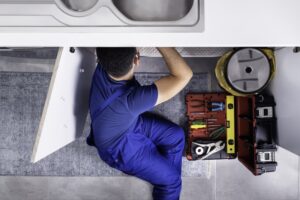 There are a few simple plumbing tasks in your home that you can perform yourself, such as replacing aerators in faucets or cleaning them out when they collect too much silt, or putting in a new flapper in the toilet when the old one wears out. But you shouldn’t try to go any farther with DIY work on your plumbing—nothing that requires you get out the wrenches or more complex tools.
There are a few simple plumbing tasks in your home that you can perform yourself, such as replacing aerators in faucets or cleaning them out when they collect too much silt, or putting in a new flapper in the toilet when the old one wears out. But you shouldn’t try to go any farther with DIY work on your plumbing—nothing that requires you get out the wrenches or more complex tools.
Furthermore, you shouldn’t hire a non-professional to take care of plumbing jobs like repairs, replacements, and installations. The local “handyperson” isn’t the best path toward a good plumbing system! You want to call on a plumber in Plattsburgh, NY who has the appropriate training, equipment, experience, licensing, and certified Master Plumbers on staff.
This list of advantages of going with a professional plumber will give you a good idea of why you only want to trust pros, no matter the service.

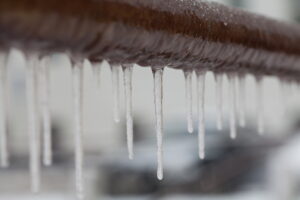 When the winter chill gets the coldest here in the Northeast—and we’re definitely at that point!—one of the biggest concerns that homeowners have is avoiding frozen pipes. When pipes freeze up, it stops the flow of water and it can severely damage the pipe, often leading to the dreaded burst pipe.
When the winter chill gets the coldest here in the Northeast—and we’re definitely at that point!—one of the biggest concerns that homeowners have is avoiding frozen pipes. When pipes freeze up, it stops the flow of water and it can severely damage the pipe, often leading to the dreaded burst pipe. 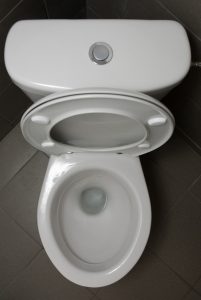 Although there are more serious plumbing emergencies that can strike a house, the overflowing toilet is the one that causes the most sudden and panicked response. We don’t blame people for getting a bit freaked out when something like this happens.
Although there are more serious plumbing emergencies that can strike a house, the overflowing toilet is the one that causes the most sudden and panicked response. We don’t blame people for getting a bit freaked out when something like this happens. If you’ve ever tried to take a shower in a house with low water pressure, you’ll know how difficult it is. But this is only one of many annoyances that low water pressure can cause. Trying to get many basic household tasks done, like cooking and cleaning, become much more difficult when the water from the faucets only trickles out.
If you’ve ever tried to take a shower in a house with low water pressure, you’ll know how difficult it is. But this is only one of many annoyances that low water pressure can cause. Trying to get many basic household tasks done, like cooking and cleaning, become much more difficult when the water from the faucets only trickles out.  Now that we’re starting to experience spring weather, it’s a good time to make sure your plumbing is ready for the middle of the year. Don’t worry: this isn’t as big a job as winter prep, when you’re working hard to make sure none of the pipes freeze. These spring steps are basic maintenance checks and jobs that you can either do yourself or with the assistance of a
Now that we’re starting to experience spring weather, it’s a good time to make sure your plumbing is ready for the middle of the year. Don’t worry: this isn’t as big a job as winter prep, when you’re working hard to make sure none of the pipes freeze. These spring steps are basic maintenance checks and jobs that you can either do yourself or with the assistance of a 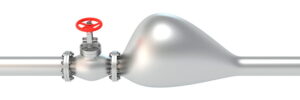 A common plumbing problem homes encounter is water pressure that’s too low. It’s hard to take a decent shower or manage to clean and cook when the water is only trickling out of faucets and showerheads. But when the water pressure is too high, that’s also a problem. You may not think of it as one, because you can control the strength of the water coming from fixtures. This increased water pressure, however, is a problem for your plumbing system and can inflict damage on it.
A common plumbing problem homes encounter is water pressure that’s too low. It’s hard to take a decent shower or manage to clean and cook when the water is only trickling out of faucets and showerheads. But when the water pressure is too high, that’s also a problem. You may not think of it as one, because you can control the strength of the water coming from fixtures. This increased water pressure, however, is a problem for your plumbing system and can inflict damage on it. 
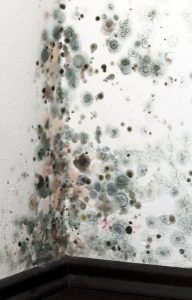 You don’t want mold anywhere in your house. Mold looks awful, creates terrible odors, destroys building material like drywall, and can release toxic spores. (Black mold, the most common type of mold due to water damage, is the most dangerous.) Unfortunately, a number of common plumbing issues can lead to mold. The faster you call for
You don’t want mold anywhere in your house. Mold looks awful, creates terrible odors, destroys building material like drywall, and can release toxic spores. (Black mold, the most common type of mold due to water damage, is the most dangerous.) Unfortunately, a number of common plumbing issues can lead to mold. The faster you call for  Do you know what the busiest day of year is for professional plumbers? The day after Thanksgiving. The toughest shopping day of the year is also when many homeowners discover they’ve got a plumbing nightmare. This makes sense: the house is packed with guests—more than a home experiences during the December holidays, most likely—and the kitchen plumbing, especially the sink and garbage disposal, are under assault from food preparation. Most parts of the plumbing get used to their fullest, increasing the chances that something will go wrong.
Do you know what the busiest day of year is for professional plumbers? The day after Thanksgiving. The toughest shopping day of the year is also when many homeowners discover they’ve got a plumbing nightmare. This makes sense: the house is packed with guests—more than a home experiences during the December holidays, most likely—and the kitchen plumbing, especially the sink and garbage disposal, are under assault from food preparation. Most parts of the plumbing get used to their fullest, increasing the chances that something will go wrong.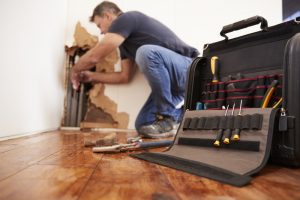 First, we want to stress that all “do-it-yourself” attempts to fix or install residential plumbing are bad. It’s simply unwise to try this type of work unless you have the proper tools and training. But there are times when DIY jobs go past bad and become serious problems. Ask any professional plumber, and you’ll often hear the same story: the majority of repairs they make are due to amateur plumbing errors.
First, we want to stress that all “do-it-yourself” attempts to fix or install residential plumbing are bad. It’s simply unwise to try this type of work unless you have the proper tools and training. But there are times when DIY jobs go past bad and become serious problems. Ask any professional plumber, and you’ll often hear the same story: the majority of repairs they make are due to amateur plumbing errors.





